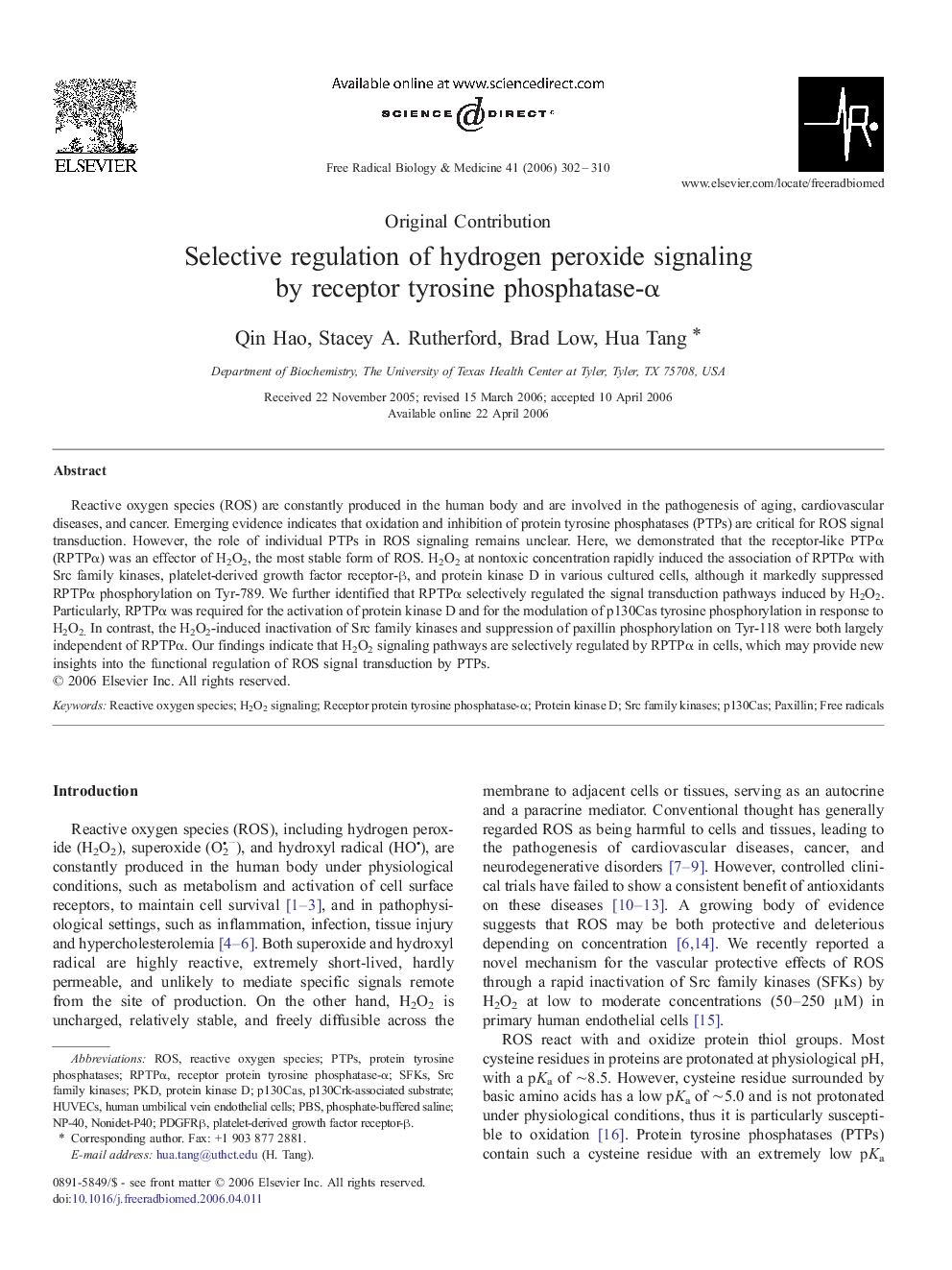| Article ID | Journal | Published Year | Pages | File Type |
|---|---|---|---|---|
| 1911521 | Free Radical Biology and Medicine | 2006 | 9 Pages |
Reactive oxygen species (ROS) are constantly produced in the human body and are involved in the pathogenesis of aging, cardiovascular diseases, and cancer. Emerging evidence indicates that oxidation and inhibition of protein tyrosine phosphatases (PTPs) are critical for ROS signal transduction. However, the role of individual PTPs in ROS signaling remains unclear. Here, we demonstrated that the receptor-like PTPα (RPTPα) was an effector of H2O2, the most stable form of ROS. H2O2 at nontoxic concentration rapidly induced the association of RPTPα with Src family kinases, platelet-derived growth factor receptor-β, and protein kinase D in various cultured cells, although it markedly suppressed RPTPα phosphorylation on Tyr-789. We further identified that RPTPα selectively regulated the signal transduction pathways induced by H2O2. Particularly, RPTPα was required for the activation of protein kinase D and for the modulation of p130Cas tyrosine phosphorylation in response to H2O2. In contrast, the H2O2-induced inactivation of Src family kinases and suppression of paxillin phosphorylation on Tyr-118 were both largely independent of RPTPα. Our findings indicate that H2O2 signaling pathways are selectively regulated by RPTPα in cells, which may provide new insights into the functional regulation of ROS signal transduction by PTPs.
